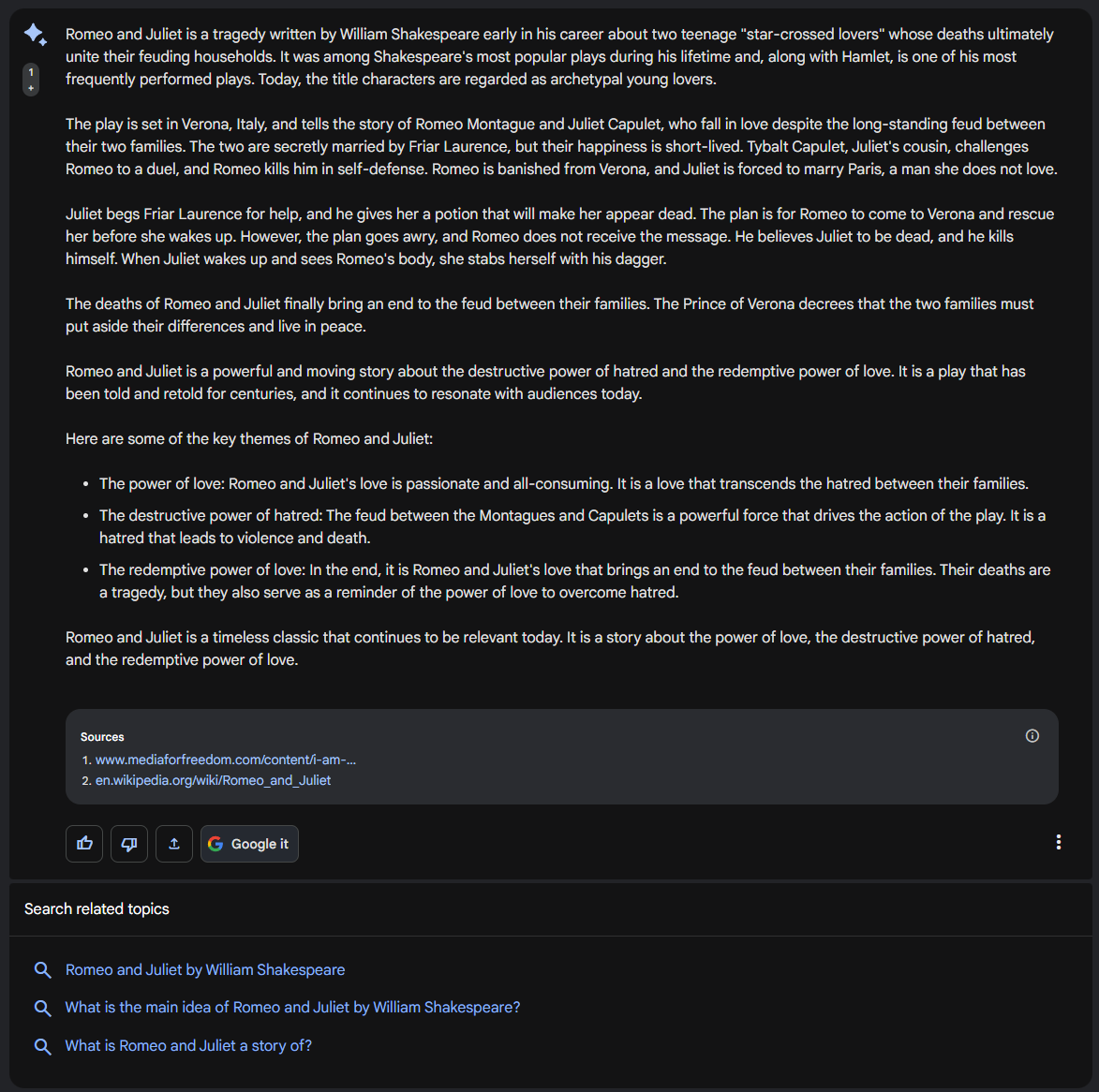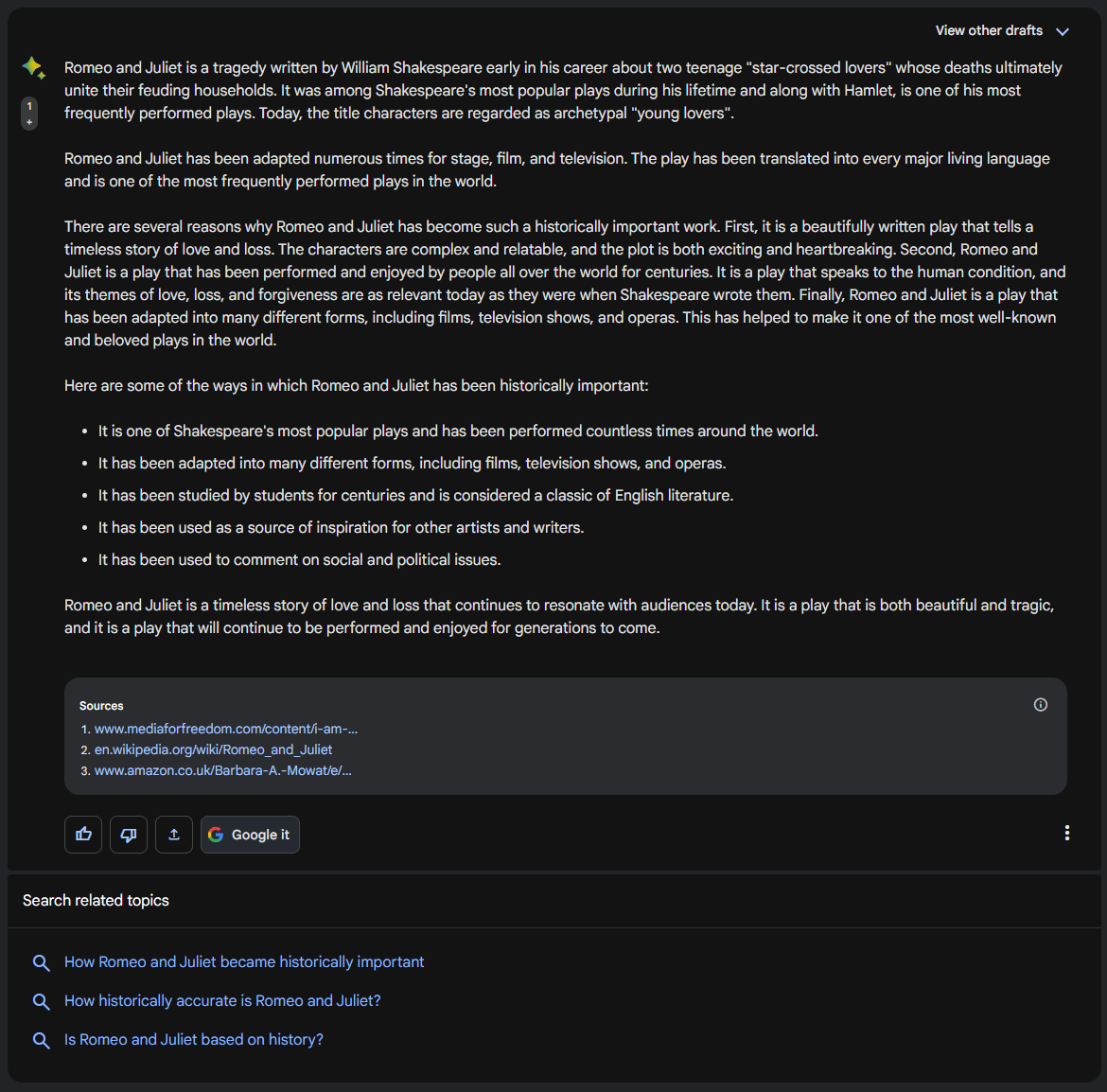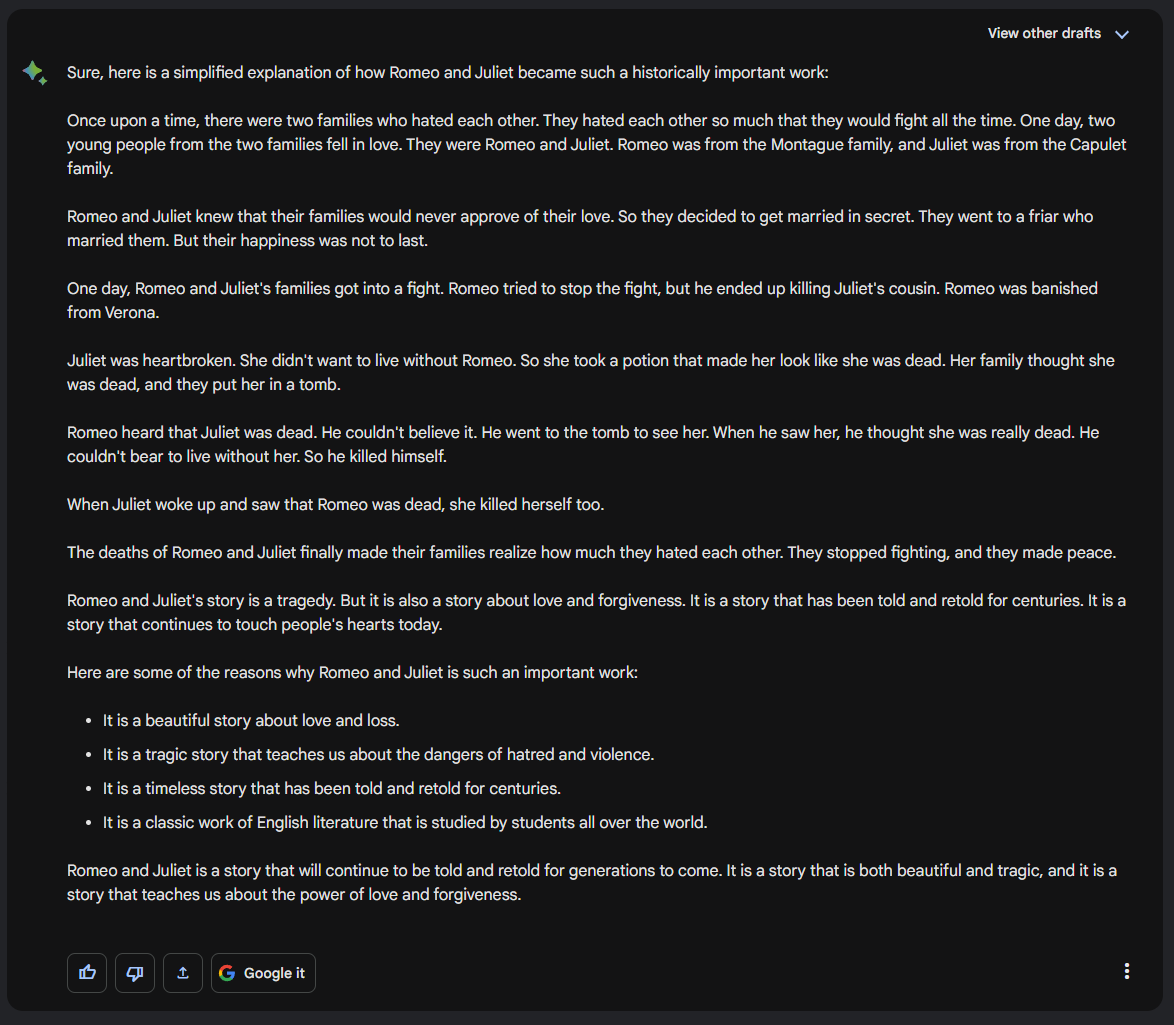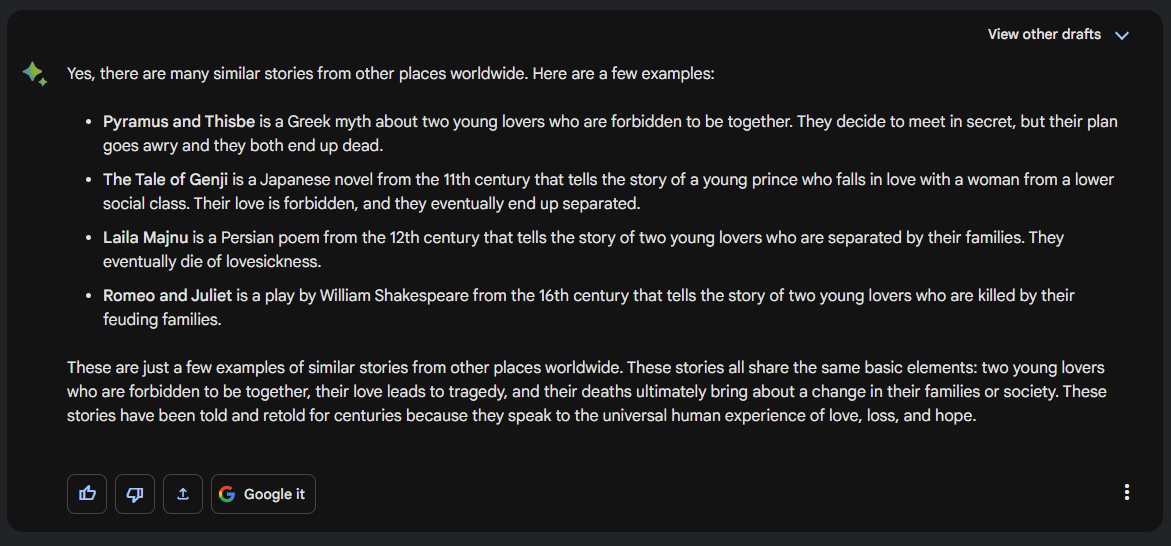Bard Explain
Using Bard to Explain
You can use Bard as a personal tutor. It can condense a lot of information into key points.
What do you Need to Understand?
Before we start to ask Bard, we need to figure out what we are trying to understand.
Be as specific as possible. For example, if we ask for an explanation of something general, we get a general (and often long) response:
Example
With the following prompt:
Explain the play "Romeo and Juliet" written by "William Shakespeare".
A response from Bard could be:

Let's try for a more specific explanation:
Example
With the following prompt:
Explain how "Romeo and Juliet" written by "William Shakespeare" became such a historically important work.
A response from Bard could be:

Now let's try to make it simpler and shorter:
Example
With the following prompt:
Explain to a 5-year-old how "Romeo and Juliet" written by "William Shakespeare" became such a historically important work. The explanation should be no more than 3 paragraphs.
A response from Bard could be:

Ask Follow-Up Questions
The previous example had a straightforward explanation. Let's dive further into that conversation:
Example
With the following prompt:
Are there similar stories from other places worldwide?
A response from Bard could be:


